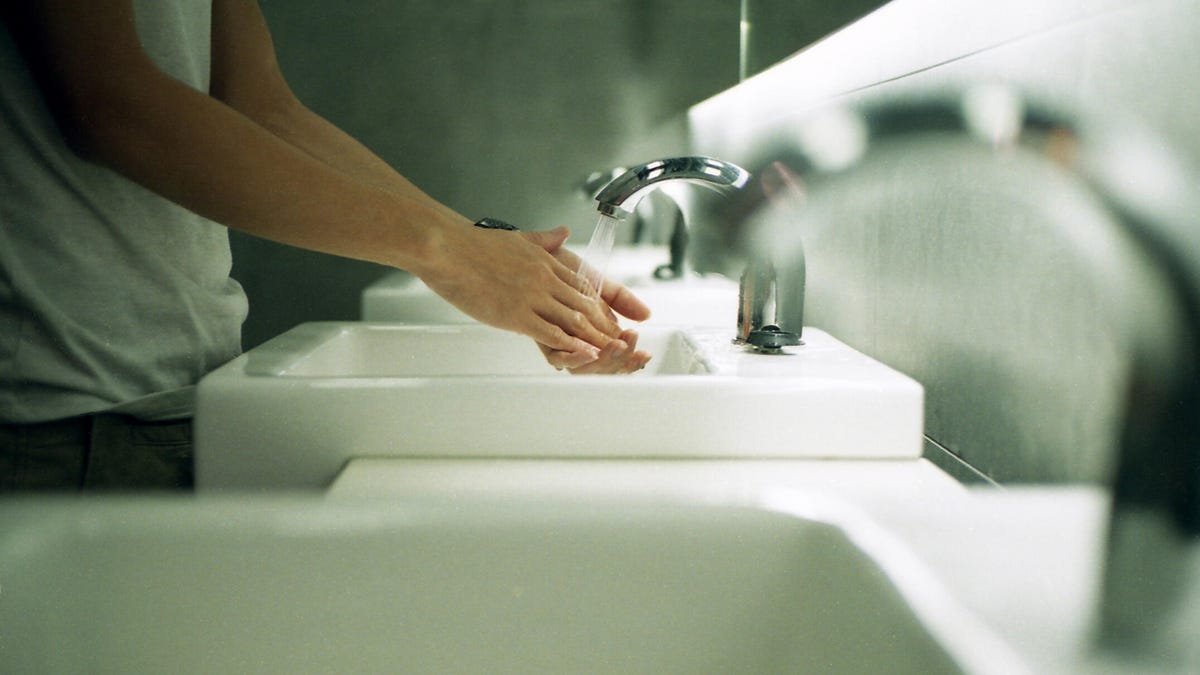 Why You Can Trust CNET
Why You Can Trust CNET Hand washing tips: How to clean your hands to protect against coronavirus
The best line of defense against getting the flu, a cold or coronavirus is to wash your dang hands.

To get truly clean hands, don't rush through the process.
The spread of the deadly coronavirus is scary, but health officials say that you can protect yourself from getting sick or spreading germs with a few simple tactics. Avoid handshakes, sneeze or cough into your elbow and above all else, wash your hands.
While there's been a frenzy of people buying hand sanitizer (or making their own), the CDC says that your best bet is to wash your hands often and long enough each time.
Read more: 7 hand soaps to fight germs, from cheap to luxury
Coronavirus updates
I didn't think I'd ever have to write an article explaining how to do something we're all taught to do as kids, but the truth is that we don't wash our hands often enough or well enough. Even worse, some of us (mostly men) don't do it at all after using the bathroom and that's plain gross. You should wash your hands after using the restroom, before eating, before and after handling food, after coughing and sneezing and after handling trash (here's a full list of situations the require hand washing).
Not only is properly washing your hands easy, it's also extremely effective at stopping the spread of disease. It requires less than 30 seconds and prevents you, your kids, your spouse, friends, coworkers and even people you don't know from getting sick.
The Centers for Disease Control and Prevention has simple directions for doing it:
1. Wet your hands with clean water. It doesn't matter if it's hot or cold, use whatever is comfortable for you.
2. Apply soap to your hands. Soap cleans your hands better than just using water. According to the FDA, you don't even have to use antibacterial soap -- any kind will do.
3. Rub your hands together to lather up the soap, then turn off the tap to save water.
4. Spread the lather to the backs of your hands and in between your fingers. Try to get it under your fingernails too -- bonus points if you use a nail brush to remove more dirt and germs.
5. Now scrub your hands together for at least 20 seconds. If you don't want to count out those seconds, sing the Happy Birthday song to yourself twice without rushing through it. You can also sing the chorus these other songs or figure out how much of your favorite song to sing while doing it. The point is not to rush.
6. Rinse your hands completely with clean water.
7. Dry your hands using a clean towel or an air dryer. Some studies have shown that paper towels are more hygienic than air dryers, but most agree that drying your hands right after washing them is important to stop the spread of germs no matter how you do it.
Tip: If you're in public restroom and have access to paper towels, use a clean towel to open the restroom door as you leave. That will shield your hands from the germs of people who left without washing their hands.

